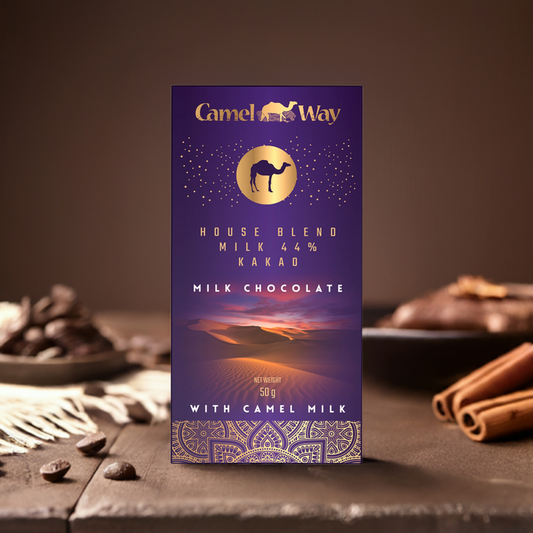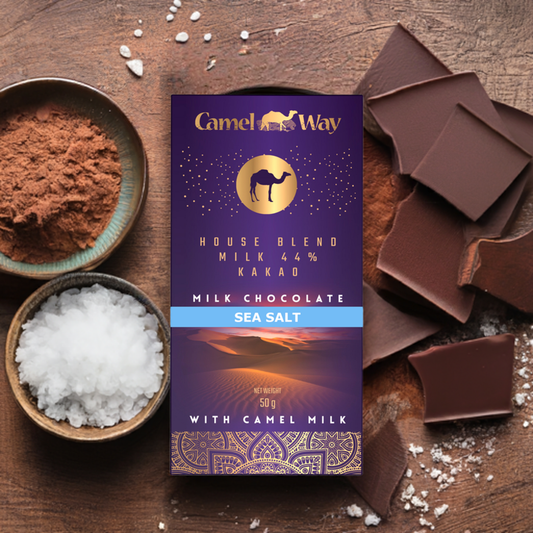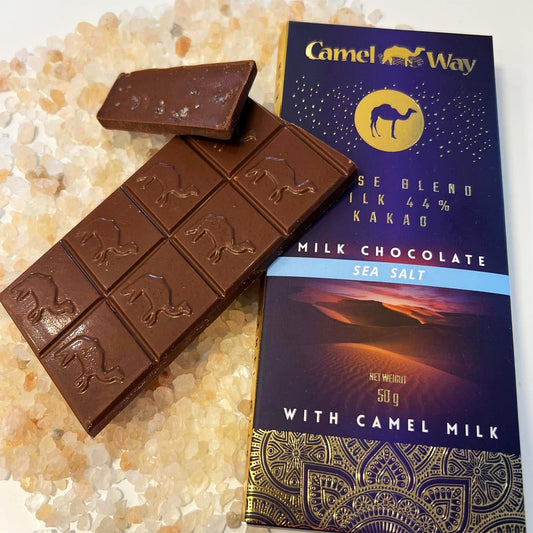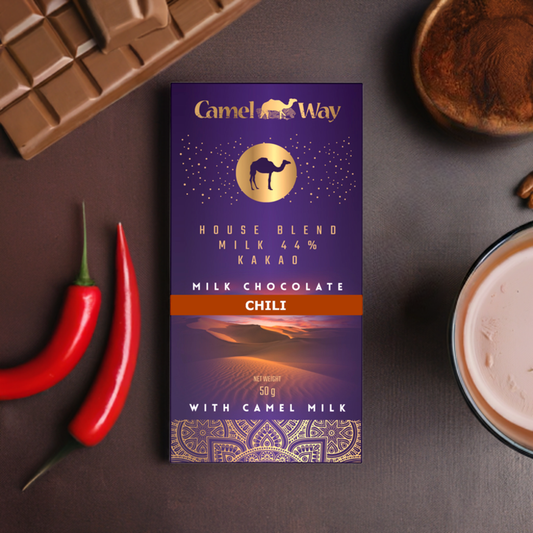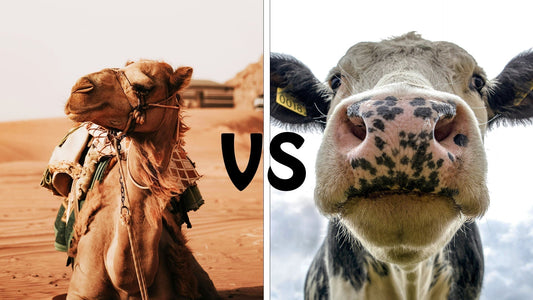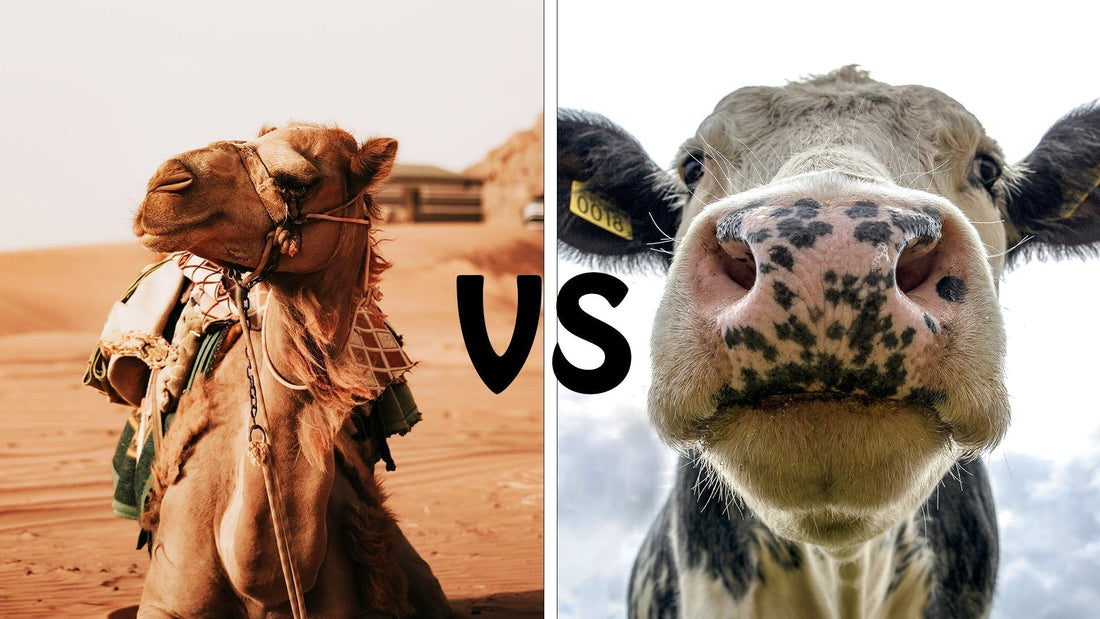
Camel Milk vs Cow Milk: 7 Health Benefits Compared
In recent years, camel milk has emerged as a popular alternative to traditional cow milk, praised for its remarkable nutritional properties and health benefits. But is camel milk truly healthier than cow milk, and is it worth the higher cost? In this extensive comparison, we examine scientific evidence to highlight why camel milk is rapidly becoming recognized as one of the healthiest milk alternatives available today.
Camel milk has been a cornerstone in combating malnutrition, especially in arid regions of Africa. During severe droughts in Kenya, camel milk emerged as a vital nutritional source, earning the moniker "white gold" for its role in sustaining communities facing food scarcity. This historical significance underscores its unparalleled nutritional value, making it a subject of increasing global interest
1. What Makes Camel Milk Nutritionally Superior to Cow Milk?
When comparing camel milk to cow milk, the first notable difference is its unique nutrient composition. Camel milk contains higher levels of vitamin C, iron, potassium, and essential fatty acids. Research published on PubMed (PMID: 40206953) highlights camel milk's higher content of amino acids and antioxidants, making it a superior choice for boosting overall health and supporting daily nutritional needs.
- Vitamin C: Camel milk contains approximately three times more vitamin C than cow milk, enhancing its antioxidant properties and supporting immune function.
- Iron Content: It boasts iron levels up to ten times higher than cow milk, crucial for preventing anemia and supporting overall health.
- Lactoferrin and Immunoglobulins: Camel milk is rich in lactoferrin and immunoglobulins, proteins that play a significant role in immune system modulation and have antimicrobial properties.
- Protein Composition: The protein structure of camel milk is closer to human breast milk, lacking β-lactoglobulin, a common allergen in cow milk, making it more tolerable for individuals with milk allergies.
2. Can Camel Milk Improve Your Gut Health?
Camel milk offers significant gut health benefits compared to cow milk. Scientific studies have demonstrated that camel milk acts as a natural probiotic, positively influencing gut flora by promoting beneficial bacteria. A recent comparative study (PMID: 39339708) found camel milk significantly increases gut microbiota diversity, boosting the presence of beneficial microbes like Bifidobacterium and Lactobacillus.
These gut-friendly bacteria enhance digestion, reduce gastrointestinal discomfort, and bolster immune system function, making camel milk a superior dietary choice for digestive health compared to regular cow milk.

3. Does Camel Milk Help Regulate Blood Sugar Levels?
Managing blood sugar levels is crucial, especially for diabetics or individuals at risk of diabetes. Camel milk stands out distinctly in this regard, as it contains natural insulin-like proteins that actively help regulate glucose metabolism.
Clinical research consistently indicates that camel milk consumption lowers blood glucose levels and insulin resistance. A significant benefit not present in traditional cow milk, camel milk is increasingly recognized as a natural insulin alternative, offering substantial advantages for diabetic diets and metabolic health.
4. Is Camel Milk Better for Heart Health than Cow Milk?
Heart health is another important area where camel milk surpasses cow milk. Rich in heart-friendly fats, including omega-3 fatty acids, camel milk actively contributes to lowering harmful LDL cholesterol while increasing beneficial HDL cholesterol.
A meta-analysis published in 2023 (PMID: 38049802) confirmed camel milk's cholesterol-lowering effects, making it beneficial in preventing heart disease and maintaining cardiovascular health. In contrast, cow milk contains higher saturated fat levels, which can negatively affect cholesterol profiles and increase cardiovascular risk.
Heart health advantages of camel milk:
- Reduces harmful LDL cholesterol
- Boosts protective HDL cholesterol
- Contains beneficial omega-3 fatty acids

5. Camel Milk vs Cow Milk: Which Is Better for Your Immune System?
Camel milk outperforms cow milk in immune system support. It contains higher concentrations of immune-supportive substances such as immunoglobulins, lactoferrin, and lysozyme. These proteins are naturally antibacterial, antiviral, and anti-inflammatory, significantly enhancing the body's defense mechanisms.
Regular consumption of camel milk thus provides superior immune system benefits compared to cow milk, helping the body fight infections and inflammation more effectively, which is especially beneficial during seasonal illnesses or chronic immune disorders.
6. Is Camel Milk Effective for Skin Conditions like Acne and Eczema?
The unique anti-inflammatory and antioxidant properties of camel milk make it highly beneficial for skin health, notably for those suffering from acne, eczema, or psoriasis. Unlike cow milk, which can sometimes exacerbate inflammatory skin conditions due to higher levels of lactose and allergens like β-lactoglobulin, camel milk is hypoallergenic and less inflammatory.
Its high antioxidant content helps reduce oxidative stress, inflammation, and promotes skin healing and regeneration, positioning camel milk as a top choice for healthier skin.
Skin benefits of camel milk:
- Reduces inflammation and oxidative stress
- Hypoallergenic properties
- Supports healing of eczema, acne, and psoriasis

7. Why Is Camel Milk More Expensive? Is It Worth the Price?
A frequent question when comparing camel milk to cow milk is regarding its price. Camel milk is indeed pricier than conventional cow milk found in supermarkets. However, this cost difference reflects significant quality and nutritional differences.
Camel milk products, such as those offered by CamelWay, undergo careful processing methods like freeze-drying, preserving the milk’s valuable nutritional properties. In contrast, supermarket cow milk is usually highly pasteurized, losing many essential nutrients in the process. It's also important to recognize that authentic, high-quality cow milk directly from farms typically has a much higher price than mass-produced supermarket alternatives.
Reasons camel milk is worth the higher price:
- Nutrient preservation through freeze-drying
- Superior health benefits supported by scientific research
- Lower allergenicity and greater digestibility
Comparing camel milk vs cow milk reveals a clear nutritional winner: camel milk. Rich in vitamins, beneficial fats, immune-boosting proteins, and low in allergens, camel milk offers significant health benefits that surpass traditional cow milk. Although more expensive, the exceptional quality, digestibility, and health advantages of camel milk easily justify the cost. Choose CamelWay’s premium camel milk to experience firsthand why it's rapidly becoming recognized as the healthiest milk alternative on the market.





